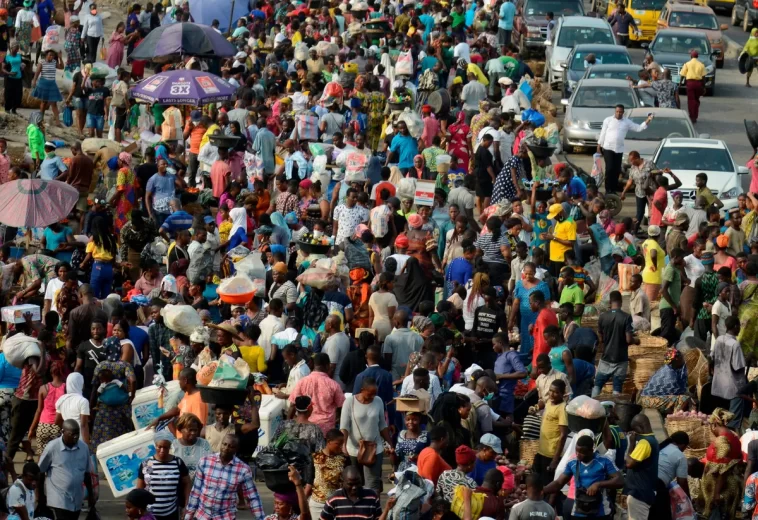Africa boasts vast oil and natural gas reserves, playing a crucial role in the global energy landscape. According to reports from Statista.com, “Africa accounted for roughly eight percent of the global oil output in 2022. Around 332 million metric tons of oil were produced on the continent that same year. The region generated seven million barrels per day, one of the lowest production levels since 2000.” This abundance of resources fuels the economies of many African nations but also presents challenges surrounding development and environmental impact. In this article, African Leadership Magazine delves into the top oil and gas producers on the continent, exploring their production statistics, reserves, and the wider significance of this sector.
Here’s a spotlight on the major oil and gas producers in Africa:
Angola: A Rising Giant
According to the 2023 Monthly Oil Market Report (MOMR), “Angola recorded 1.06 million barrels per day (bpd) of crude production, up from 972,000 bpd recorded.” Angola has surged to the forefront of African oil production, surpassing Nigeria in recent years. Also, reports from Energy Capital & Power, Also, reports from Energy Capital & Power, Angola’s oil production rose to 1.175 million bpd, up from 1.162 million bpd in 2022. This impressive output is backed by substantial proven oil reserves exceeding 9 billion barrels. The Angolan government is actively working to unlock the full potential of its hydrocarbon sector through new exploration initiatives and policy reforms. A six-year licensing round aims to attract investment and expertise for further exploration, while policy changes aim to streamline operations and incentivize production growth.
Nigeria: A Long-Standing Leader
In recent years, Nigeria has recorded a surge in pipeline vandalism and crude oil theft incidents in its oil-producing region, a development that worsened the nation’s revenue challenge but the nation has remained a significant player in African oil production, despite Angola’s recent rise. In 2022, Nigeria produced an estimated 1.02 million bpd. With a long history of oil exploration and development, Nigeria boasts proven oil reserves exceeding 36 billion barrels. 2023 Monthly Oil Market Report (MOMR) reports stated that an output of 999,000 bpd in April compared to 1.3 million bpd in March. The April output figure represented the lowest production rate the nation has recorded in 2023. Despite these hurdles, Nigeria is actively seeking to diversify its oil and gas sector, with a growing focus on natural gas production and utilization.
Algeria: A North African Powerhouse
North Africa is well-represented among Africa’s top oil and gas producers. Algeria holds the third position, producing approximately 970,000 bpd in 2022. Algeria also boasts significant natural gas reserves, making it a major supplier to Europe. The country’s hydrocarbon sector is a crucial source of revenue for the government, funding social programs and infrastructure development. However, Algeria, like other oil-dependent economies, faces the challenge of diversifying its revenue streams in the face of a potentially fluctuating oil market.
Libya: A Nation with Immense Potential
Algeria is among the leading oil producers and exporters worldwide. Amounting to over 12 billion barrels, its proven crude oil reserves are the third-largest in Africa after those of Libya- Statista.com reports. Libya’s oil production capacity is substantial, with estimates suggesting a potential output. However, political instability and ongoing conflict have hampered production in recent years. In 2022, Libya’s oil production averaged around 946,000 bpd. Despite these challenges, Libya holds significant proven oil reserves exceeding 48 billion barrels, making it a country with immense potential once stability is restored.
Egypt: A Longstanding Producer with Diversified Resources
Egypt has a long history of oil and gas exploration and production. In 2022, the country produced an estimated 556,440 bpd of oil. However, Egypt’s significance extends beyond oil, with the country also being a major producer of natural gas. Recent discoveries of large natural gas fields in the Zohr region have bolstered Egypt’s position as a key energy player in the region. The country is actively developing its natural gas infrastructure and export capabilities, aiming to become a major supplier to Europe and beyond.
Republic of the Congo
The Republic of Congo, also known as Congo-Brazzaville, holds a significant position among African oil producers. Production estimates for 2022 suggest an output of around 350,000 bpd. The country’s oil wealth plays a crucial role in its economy, but concerns exist regarding revenue distribution and the need for diversification. The government is increasingly focusing on developing its natural gas resources and utilizing its oil revenue for infrastructure development and social programs.
Equatorial Guinea: A Smaller Player with Big Impact
Equatorial Guinea, despite its relatively small size, is a significant oil producer in Africa. Estimates suggest the country produced around 120,000 bpd of oil in 2022. Oil revenue has fueled rapid economic growth in Equatorial Guinea, but challenges remain regarding income inequality and sustainable development. The government is exploring ways to leverage its oil wealth for broader economic development and improve living standards for its citizens.
Gabon: A Mature Oil Producer
Gabon is a mature oil producer in Africa, with a long history of exploration and development. Production estimates for 2022 suggest an output of around 180,000 bpd. While oil remains a significant contributor to Gabon’s economy, the country is actively seeking diversification to reduce its dependence on a single resource. This includes exploring its natural gas reserves and investing in renewable energy sources to meet future energy needs.
South Sudan: A Newcomer with Growing Potential
South Sudan, having gained independence in 2011, is a relatively new entrant in the oil and gas production scene in Africa. Despite ongoing challenges, the country boasts substantial oil reserves estimated at over 3.6 billion barrels. Production in 2022 is estimated at around 161,000 bpd. South Sudan’s oil sector plays a crucial role in its economic development, but achieving political stability and managing oil revenue effectively will be essential for long-term prosperity.
Ghana: A Rising Star in West Africa
Ghana’s emergence as an oil producer in 2010 marked a significant development for the West African nation. Production estimates for 2022 suggest an output of around 200,000 bpd. The discovery of the Jubilee Field in 2007 propelled Ghana into the ranks of oil-producing countries. The government is working to leverage its oil revenue for infrastructure development, education, and healthcare, while also exploring its natural gas reserves for domestic use and potential export.
READ ALSO: AfDB’s stride on Education: Nigeria, Malawi in focus
Additionally, in terms of overall production, Africa produced around 332 million metric tons of oil, which included crude oil, shale oil, oil sands, and natural gas liquids (NGLs). Despite a slight decrease from the previous year, oil remains a vital economic driver for these countries.
When it comes to exports, Nigeria was not only the largest producer but also the largest crude oil exporter in Africa. Algeria and Libya also had substantial export volumes, contributing to North and West Africa’s nearly 10% share of the global oil exports.
While oil and gas remain dominant players in Africa’s energy sector, the future is likely to see a shift towards diversification. The growing focus on renewable energy sources like solar and wind power, along with the increasing importance of natural gas for cleaner electricity generation, points towards a more balanced energy mix. Additionally, there’s a growing need for African nations to address environmental concerns associated with oil and gas production.


